As an immigrant, I often seek out works of literature reflecting issues that might arise with moving to a new country, especially if it’s at a young age. I was five when my family left Ukraine and arrived in the Midwest, and as such, I did not always find it easy to relate to mainstream literature and television. Nearly every Russian or Ukrainian character I saw was a mobster or a prostitute. Where are all the stories about regular Russian people? I often wondered. Then I would think: I guess I need to write one! (Which I did, At the End of the World, Turn Left)
Nowadays, there are more books written by Jewish refugees from the USSR—Gary Shteyngart is a popular example—or about them: Jonathan Safran Foer’s Everything is Illuminated comes to mind—but there are still very few that I would call suspenseful or resembling something that could fit into the crime/thriller genre while also being literary. Luckily, I have come across a few great ones, which I will share with you here, in case you may also be wondering where to find such a specific cross-section of literature, or are merely curious about a more diverse selection of books.
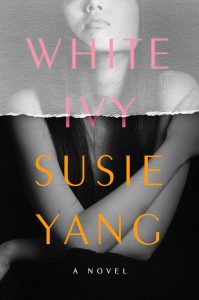
White Ivy by Susie Yang
As far as suspenseful immigrant tales, White Ivy is the first to come to mind—and it’s no surprise at all that Netflix has already optioned this book to series. The plot—about a daughter of Chinese immigrants who will do just about anything for wealth and status—is compelling, the protagonist is relatable (albeit a little unhinged) and like all great immigrant fiction, Yang includes a quirky grandmother in there for comic relief. I am a huge fan of seniors in literature, immigrants especially, because their straightforwardness and lack of social tiptoeing remind me so much of my own grandparents, who practically raised me our first few years in America. Like mirrors, our elders not only reflect our modern-day privileges, they also reveal huge generation gaps, which are especially larger with immigrants who, after a generation or two, are usually pretty well-integrated into American culture. An aspect that is rarely explored, but which Susie Yang illustrates with the expertise of someone who has lived it, is the unique and discomfiting balancing act of immigrants who come here as children. White Ivy explores the ways in which this abrupt change in environment can shatter your identity; it also has all the elements of a classic crime/suspense novel, and a rather unexpected ending. It was my favorite book of 2020.
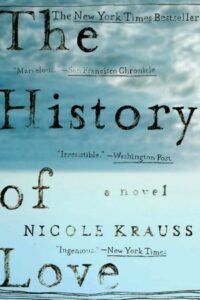
History of Love by Nicole Krauss
Nicole Krauss is not an immigrant writer, but, like her ex-husband Jonathan Safran Foer, she writes immigrants well. I am biased heavily towards this book, as I loved it so much in my twenties that I named my daughter Alma after the main character, whose namesake is also a character named Alma in a book within the book that is also called History of Love, which her mother is translating (I know—very meta). Technically it’s literary fiction, but between the manuscript theft that spawns the entire plot and Leo Gursky’s past escape from WWII-era Poland, it’s compelling enough to be a good example of suspenseful immigrant literature. The ending is still my favorite ending in all of literature, in terms of being incredibly moving and also satisfying. Extra points for also including an elderly immigrant character in one of the main storylines! History of Love is a classic, and if you haven’t read it yet, you should.
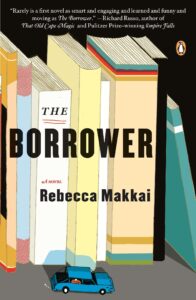
The Borrower by Rebecca Makkai
Full disclosure, I know Rebecca Makkai—but we were still strangers when I first fell in love with her debut novel, The Borrower, about a young librarian named Lucy who “kidnaps” her favorite young patron after he runs away from his overbearing mother, who intends to send him to conversion therapy. This spawns an epic and entertaining road-trip across the Midwest, which is another plus, as I love to read books set in unusual places—i.e. not New York. Along the way, Lucy must use the connections of her shady Russian father to escape persecution; the conversations between Lucy and her immigrant father are some of my favorite parts of the book, and add a good amount of levity to the writing (Rebecca’s father was Hungarian, so I imagine she knows all about the intricacies of this type of relationship). A great read for fans of immigrant literature, as well as road-trip literature, or quirky atypical protagonists. One of my favorite, most-relatable lines, was this: “For one thing, he’d bought it from a man named Uncle Nicolai, who was not my actual uncle and who had no discernible job other than doing favors for other Russians.” Yes! So many “uncles.”
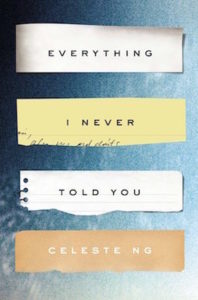
Everything I Never Told You by Celeste Ng
Before her popular hit Little Fires Everywhere, which is now a Hulu show, Celeste Ng’s wrote a novel about a dead immigrant teen and how it blew up her quiet midwestern family. A very tense page-turner!
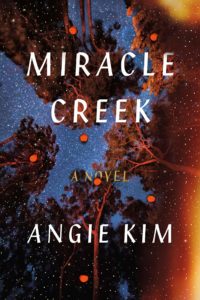
Miracle Creek by Angie Kim
This book was a bit unusual—framed as a courtroom mystery about an explosion at a special treatment center that kills one and injures several others—but the mystery of who did it was very compelling, and the characters were complex and interesting. Immigrant identity was a big theme here as well.
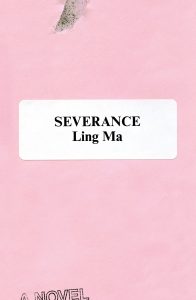
Severance by Ling Ma
This was my favorite book of 2018. It’s a post-apocalypse narrative about a pregnant young immigrant who is one of a handful of survivors of a contagious flu—so maybe now might not be the best time to read it. But it is definitely worth reading. Ling Ma also explores immigrant identity in an expert-like fashion. Her protagonist, Candace, a Chinese immigrant who works in publishing, was possibly the closest I’ve ever felt to being a character in someone else’s book.

Lolita by Vladimir Nabokov
This is not a title one thinks of when imagining crime novels—but what could be more criminal than a middle-aged man’s infatuation with a 12-year-old? Add to that an untimely death, violent jealousy, murder, and a road trip, and you’ve got the makings of a classic suspense story. Plus, basically everyone dies, which makes it the most Russian book on this list. The writing is amazing, too. This line is still one of the most insightful descriptions in literature, because it can be true for so many things: “Indeed, it may very well be, that the very attraction immaturity has for me lies … in the security of a situation where infinite perfection fills the gap between the little given and the great promised—the great rosegray never to be had.” In a less creepy way, the great rosegray is also what being a writer in the world of publishing feels like sometimes.
***


















